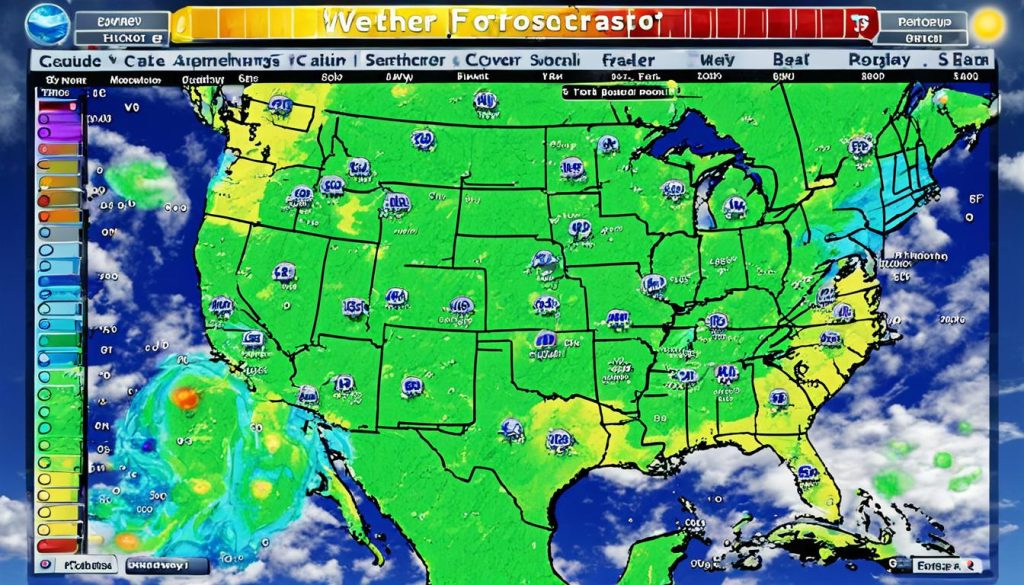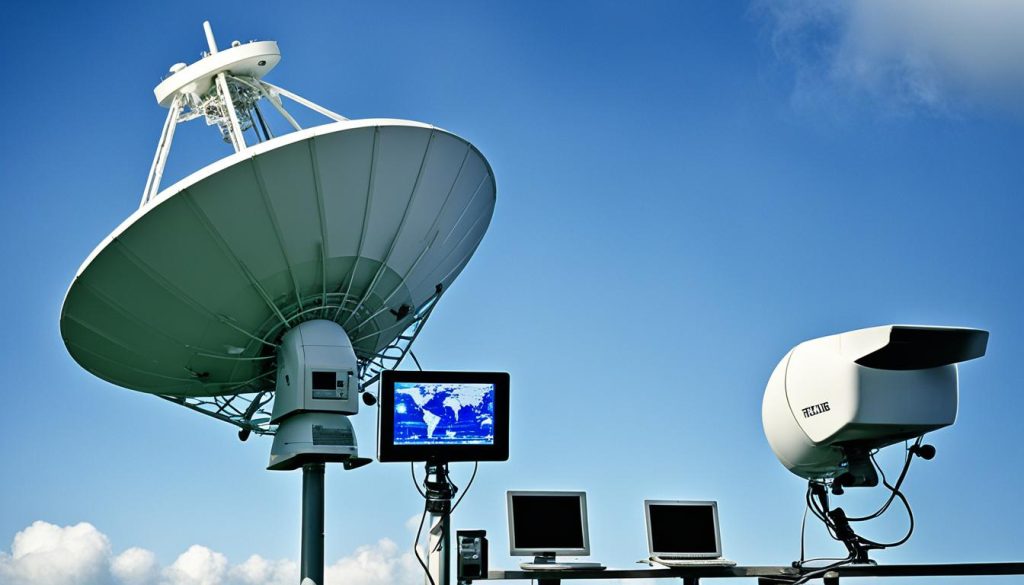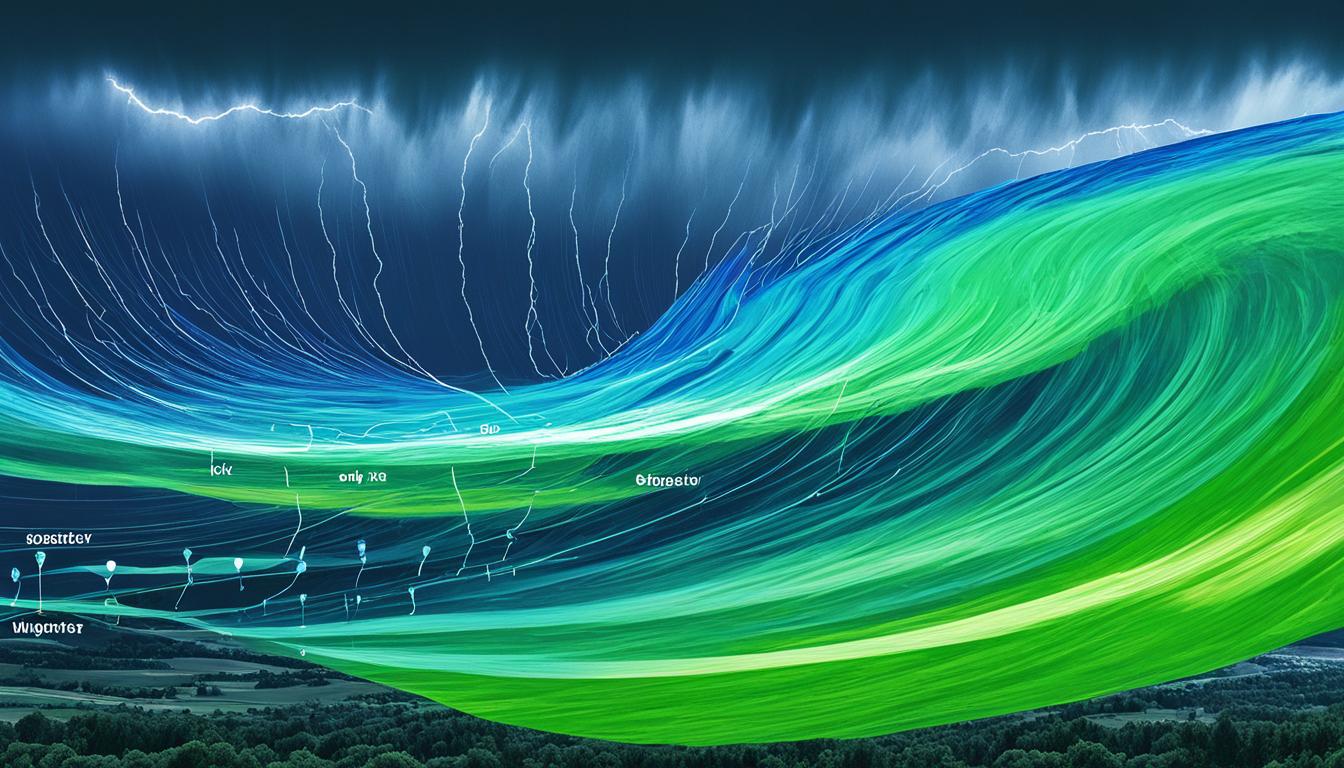In today’s ever-changing atmospheric conditions, accurate weather forecasting has become an indispensable tool for individuals, businesses, and communities alike. From planning outdoor activities to managing critical operations, reliable information about the weather is essential for making informed decisions. This section explores the key elements that make up a comprehensive weather forecasting service, including the importance of live radar monitoring and storm tracking.
Meteorology, the scientific study of the atmosphere and its phenomena, is the foundation upon which weather forecasting is built. By closely monitoring atmospheric conditions, temperature, humidity, and air pressure patterns, meteorologists can develop sophisticated models to predict future weather patterns with greater accuracy than ever before. This knowledge is then combined with the latest satellite and radar technology to provide real-time updates on weather developments, enabling individuals and organizations to anticipate and prepare for changing weather, climate, and atmospheric conditions.
Key Takeaways
- Accurate weather forecasting is crucial for individuals, businesses, and communities.
- Meteorology, the study of the atmosphere, is the foundation of weather forecasting.
- Live radar and satellite monitoring provide real-time updates on weather patterns and storm activity.
- Advanced forecasting techniques and technologies have greatly improved the reliability of weather predictions.
- Comprehensive weather forecasting services are essential for making informed decisions and planning effectively.
Understanding the Importance of Weather Forecasting
Accurate weather forecasting is a critical component of atmospheric science and meteorology, providing invaluable insights into the climate and environmental conditions that shape our daily lives. By leveraging advanced weather monitoring and predictive modeling techniques, meteorologists can offer reliable forecasts that help individuals, businesses, and communities better prepare for and respond to changing weather patterns.
The significance of weather forecasting extends far beyond simply knowing the temperature or precipitation levels. Precise weather information can inform important decision-making processes, from personal safety and travel planning to agricultural practices and emergency management. By understanding the atmospheric science behind weather phenomena, we can better anticipate and adapt to the challenges posed by extreme climate events, such as severe storms, droughts, or heatwaves.
Advancements in weather monitoring technologies, including satellite imagery, radar systems, and sophisticated computer models, have drastically improved the accuracy and timeliness of weather forecasts. This, in turn, has enabled more effective preparedness and mitigation strategies, ultimately saving lives and minimizing the economic and societal impact of weather-related disasters.

As our understanding of atmospheric science and meteorology continues to evolve, the field of weather forecasting will play an increasingly vital role in helping individuals, businesses, and governments navigate the complexities of our dynamic climate. By staying informed and responsive to the latest weather trends and predictions, we can better prepare for and mitigate the challenges posed by our ever-changing environment.
Weather Forecasting Techniques and Technologies
As the field of weather forecasting continues to evolve, advancements in technology have played a crucial role in enhancing the accuracy and reliability of predictions. From satellite imagery to advanced radar systems and sophisticated modeling techniques, weather forecasters now have an unprecedented array of tools at their disposal.
One of the key drivers of improved weather forecasting has been the rapid development of satellite technology. High-resolution satellite images and data from systems like the Geostationary Operational Environmental Satellite (GOES) provide meteorologists with a detailed, real-time view of atmospheric conditions across large geographical regions. This invaluable information allows for more accurate weather monitoring and earlier detection of potential storm systems.
Complementing satellite data, radar technology has also become an indispensable tool in weather forecasting. Doppler radar systems, capable of tracking wind speed and direction, precipitation levels, and storm intensity, give forecasters a deeper understanding of current weather patterns and enable more precise predictions of future conditions.
Alongside advancements in satellite and radar technology, sophisticated modeling techniques have revolutionized the way weather forecasts are generated. Numerical weather prediction models, powered by supercomputers, integrate vast amounts of atmospheric data to simulate and project future weather scenarios with unprecedented accuracy. These models, combined with real-time observations from various sources, provide the foundation for the reliable weather forecasting services we rely on today.

Conclusion
As we have explored throughout this article, the field of weather forecasting has undergone a remarkable transformation, driven by advancements in meteorological science, satellite and radar technology, and sophisticated numerical modeling. The critical importance of accurate weather forecasting cannot be overstated, as it impacts individuals, businesses, and society as a whole, enabling informed decision-making and better preparedness for a wide range of weather-related events.
The integration of cutting-edge technology has revolutionized the way we monitor, analyze, and predict atmospheric conditions. From the real-time tracking of storms and weather patterns to the development of highly accurate long-term forecasts, the weather forecasting industry has become an indispensable resource for a wide range of applications, from personal planning to large-scale disaster response and mitigation.
Looking to the future, we can expect to see continued advancements in the field of weather forecasting, with the incorporation of even more sophisticated modeling techniques, the integration of artificial intelligence and machine learning, and the expansion of global weather monitoring networks. As we confront the challenges posed by a changing climate, the importance of accurate and reliable weather forecasting will only continue to grow, serving as a critical tool for adapting to and mitigating the impacts of extreme weather events.
FAQ
What is the importance of accurate weather forecasting?
Accurate weather forecasting is crucial for a variety of reasons. It helps individuals plan their daily activities, businesses optimize their operations, and governments prepare for and respond to severe weather events. Timely and reliable weather information can save lives, protect property, and contribute to the overall well-being of society.
What are the key elements that make up a comprehensive weather forecasting service?
A comprehensive weather forecasting service typically includes live radar monitoring, storm tracking, and the use of advanced meteorological data and modeling techniques. These elements work together to provide detailed and up-to-date information about current and future weather conditions, allowing users to make informed decisions.
How have weather forecasting techniques and technologies evolved over time?
Weather forecasting has undergone significant advancements in recent years, thanks to the development of satellite and radar monitoring, as well as sophisticated numerical modeling. These technologies have drastically improved the accuracy and reliability of weather predictions, enabling meteorologists to provide more detailed and reliable forecasts.
How do weather forecasting services help businesses and individuals make informed decisions?
Weather forecasting services provide valuable information that allows businesses and individuals to make informed decisions and better prepare for weather-related events. Whether it’s a business planning logistics, a farmer deciding when to harvest, or a family planning a vacation, accurate weather forecasts are essential for effective decision-making and risk management.
What is the future of weather forecasting technology?
The future of weather forecasting looks promising, with ongoing advancements in satellite and radar technology, as well as the increasing use of machine learning and artificial intelligence to improve the accuracy and reliability of weather predictions. As the field of meteorology continues to evolve, we can expect even more accurate and detailed forecasts that will help individuals, businesses, and governments better prepare for and respond to changing weather patterns and extreme weather events.






